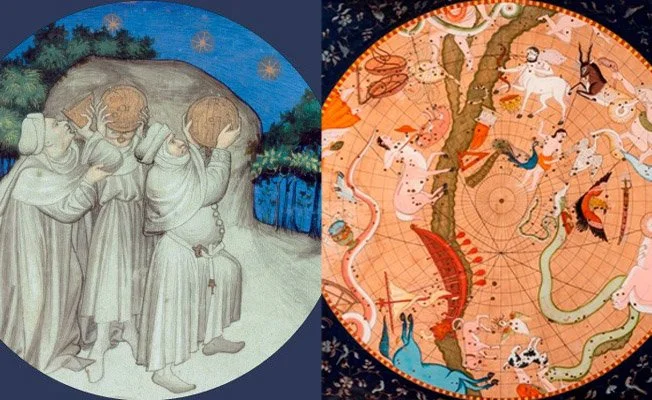Visit to the Bridwell Library and exhibition tour of Unearthing the Legacy of Islamic Spain
Friday 13 December 2024, in person
9:45am–3pm CT
Bridwell Library and Meadows Museum
Register HERE
Schedule of events
9:45 AM: Arrival at Bridwell Library
10:00–11:30 AM: Guided visit led by Arvid Nelsen, Curator of Rare Books & Manuscripts and Librarian for Special Collections
11:45 AM: 5-minute walk to the Meadows Museum
12:00 PM: Brown bag lunch at the Custard Institute, followed by free time to explore the permanent collection
2:00 PM: Tour of Unearthing the Legacy of Islamic Spain, led by Cristina Aldrich
3:00 PM: Explore the museum’s medieval holdings with Cristina Aldrich and/or Amanda Dotseth
Morning Visit: Bridwell Library Begin the day with a guided tour of Bridwell Library’s extraordinary collection of medieval manuscripts and devotional books. The tour will be led by Curator of Rare Books and Manuscripts, Arvid Nelsen. Located on the SMU campus, Bridwell Library is renowned for its resources supporting the study of theology, religion, and history.
Lunch will be provided by the ICMA.
Afternoon Tour: Meadows Museum The afternoon features a tour of the Meadows Museum’s exhibition Unearthing the Legacy of Islamic Spain, led by Center for Spain in America (CSA) Curatorial Fellow Cristina Aldrich. This exhibition focuses on the 19th- and 20th-century reception of Spain’s Islamic heritage, with paintings, photographs, drawings, and printed materials reflecting diverse perspectives on the country’s long history of Muslim rule—from the arrival of the Umayyads in the eighth century to the expulsion of the last Nasrid sultan in 1492. Anchoring the exhibition is one of the Meadows Museum’s medieval treasures: a 10th-century marble capital from the palace-city of Madinat al-Zahraʾ, near Córdoba. This exquisite architectural fragment serves as a tangible connection to the medieval past, embodying the material that inspired the 19th-century artists and intellectuals whose works are on display. Together, the medieval and modern objects reveal the complex tension between Spain’s medieval history and its modern reinterpretations.
Closing the Day The day concludes with a tour of the museum’s medieval holdings, showcasing the depth and diversity of Spain’s artistic heritage. Highlights include a recently acquired c. 1500 panel painting of St. Bartholomew by Domingo Ram, a 14th-century Catalan liturgical cabinet, two 12th-century frescoes from San Baudelio de Berlanga on long-term loan from the Museum of Fine Arts, Boston, late medieval alabasters by Gil de Siloe, and retablos by Martín de Soria.
Drinks to follow.
Register HERE











